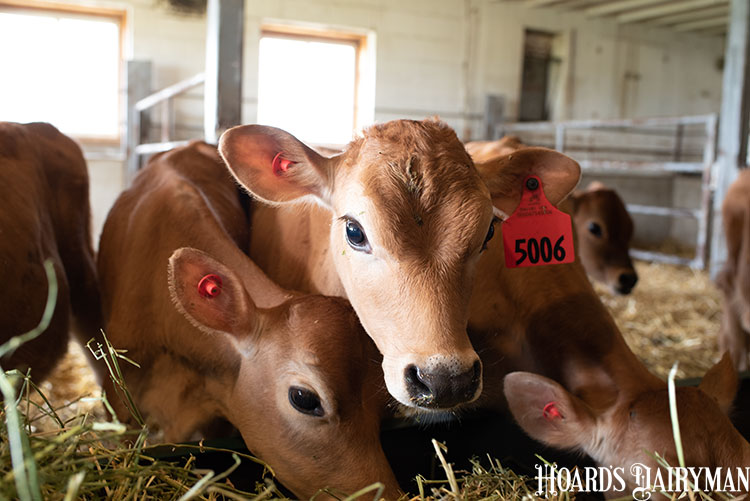
Vaccination is one tool dairy producers can use to keep calves healthy, helping the animals to meet their full potential for growth and production. While the first dose of a vaccine is important, veterinarian Amelia Woolums explained during the February Hoard’s Dairyman webinar that the booster dose should not be forgotten.
“Booster vaccines are especially important in calves,” said the veterinarian and professor at Mississippi State University. That’s because the first dose of a vaccine primes the immune system, generating some antibodies, mostly Immunoglobulin M (IgM). She said the booster results in more antibody production, including greater amounts of Immunoglobulin G.
“IgM is a good antibody, but IgG is able to do a lot more,” Woolums shared. “When we give a priming dose, followed by a booster, we get a much stronger and better immune response, and that is one of the principles of vaccination.”
The booster should be administered one to two months after the initial vaccination. When giving two doses, that doesn’t mean the calf is protected the day after the second dose, Woolums clarified. Aim to give the second one a month before disease exposure is expected to allow calves time to mount an immune response.
Why might vaccinated calves get sick anyway? “There are many reasons why a vaccine may appear to fail, and it is not always the fault of a vaccine,” Woolums said.
Sometimes failure is due to how a vaccine is handled. For example, maybe the vaccine wasn’t stored at the proper temperature, or perhaps it wasn’t used quickly enough. If disinfectants were used to wash multidose syringes, Woolums said that can get into the plastic and kill the vaccine.
Poor timing of administration is also a problem if it does not allow enough time for immune response or a booster is not given when needed.
The condition of the host animal can also be a reason for failure. This may be the case if the animal is already sick at the time of vaccination or is experiencing a nutritional deficiency. Vaccines can also be unsuccessful if the product used is not effective against the pathogen infecting the animals.
In the face of a disease outbreak among vaccinated cattle, Woolums said to work with your veterinarian to determine the most likely cause of this apparent vaccine failure.
To learn more about vaccination in calves, watch the February Hoard’s Dairyman webinar, titled “Supporting calf immunity for health and growth.” The sponsor for this webinar was Hampel’s Calf-Tel.








